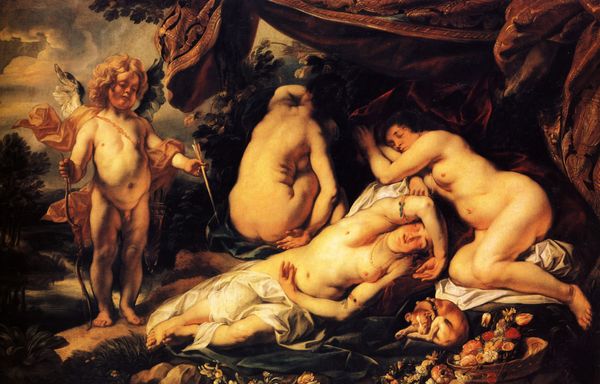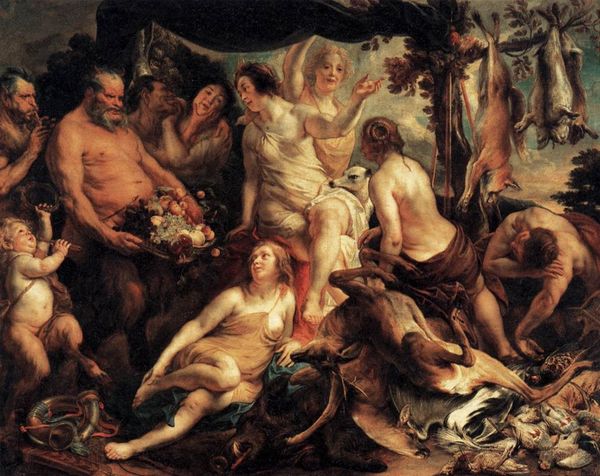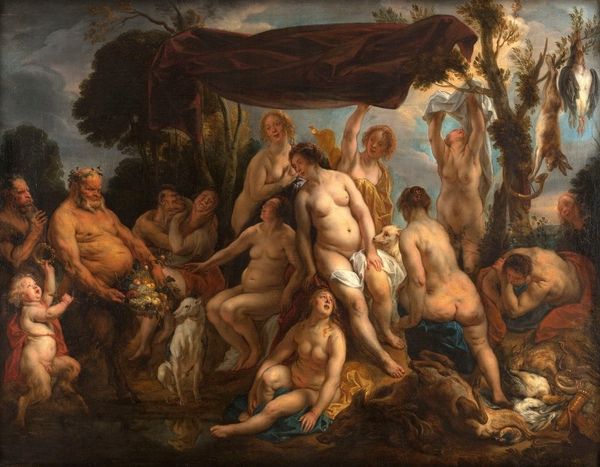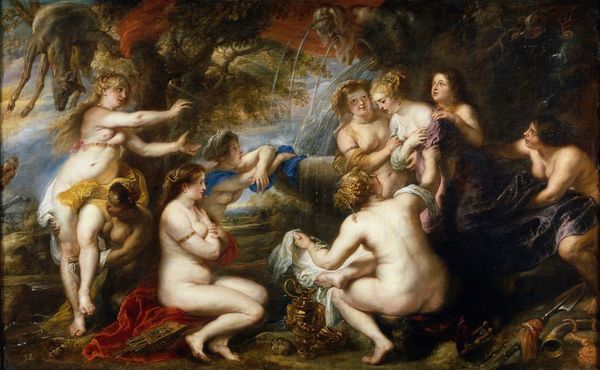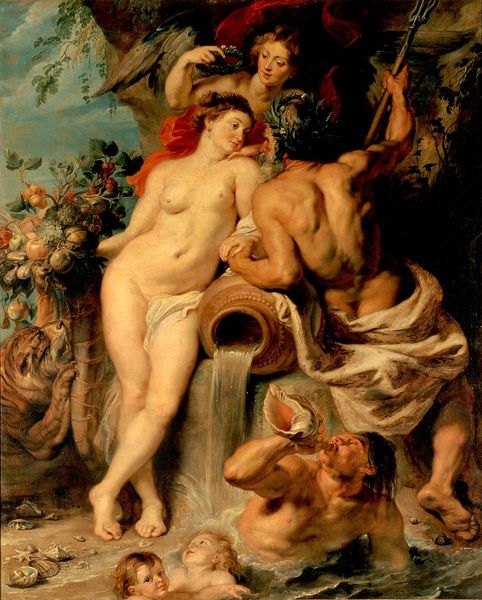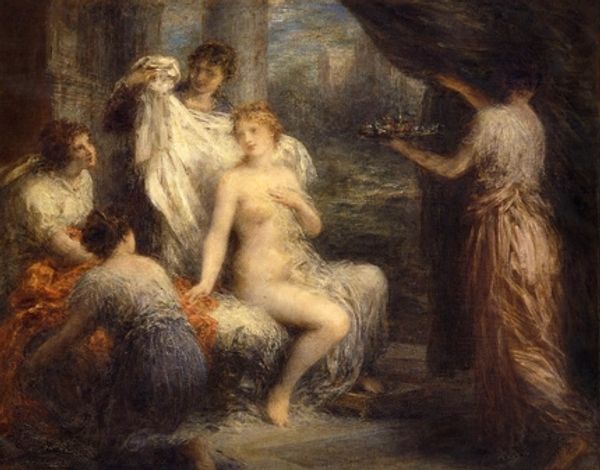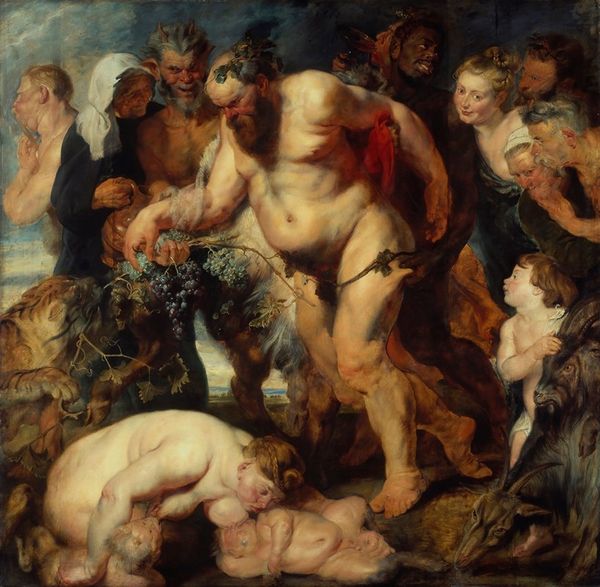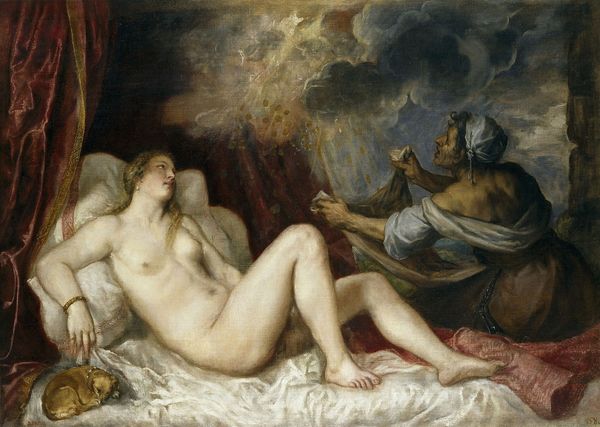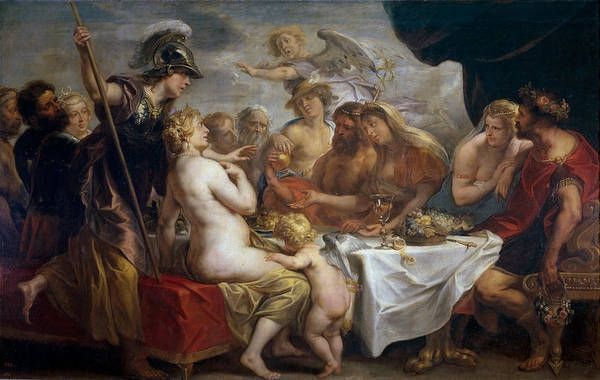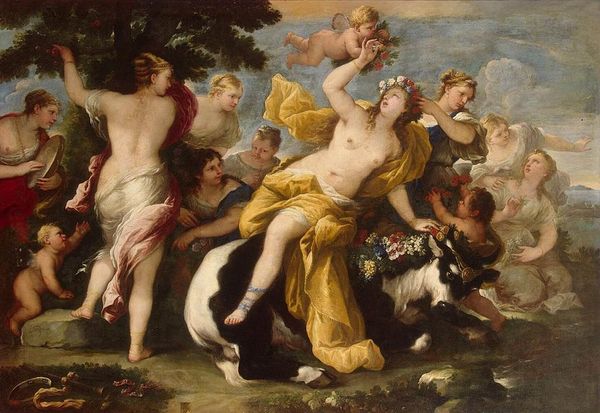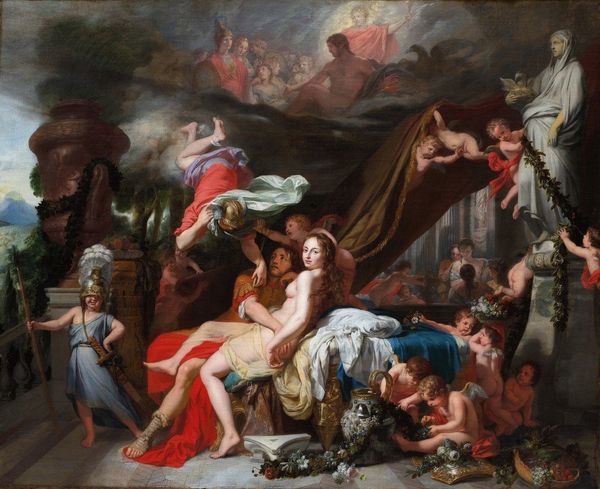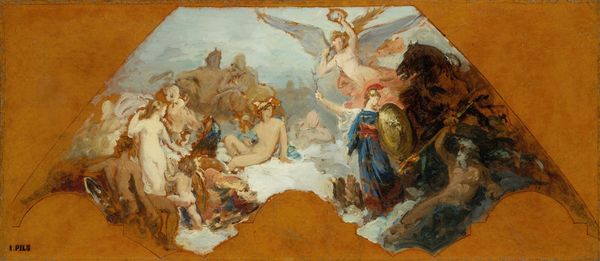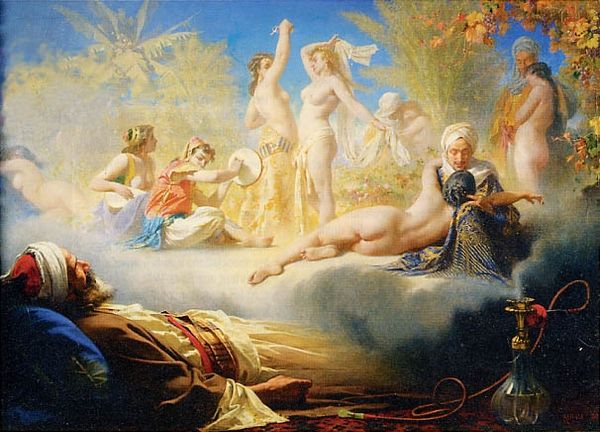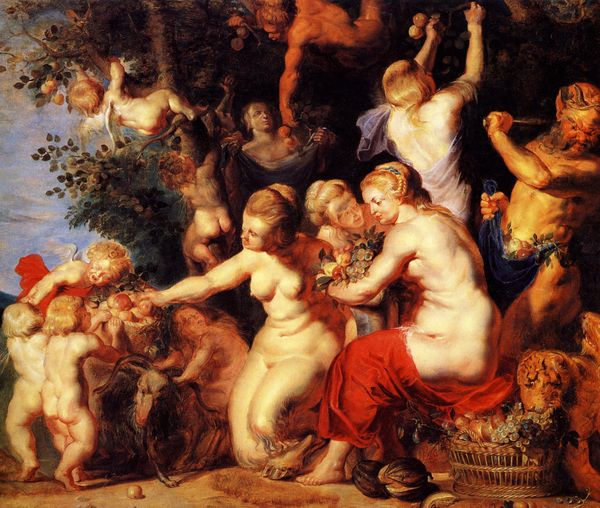
oil-paint
#
allegory
#
baroque
#
oil-paint
#
figuration
#
oil painting
#
mythology
#
history-painting
Copyright: Public Domain: Artvee
Editor: Here we have "The Wedding of Peleus and Thetis" painted by Peter Paul Rubens in 1636 using oil paint. The figures seem to burst forth from the canvas. It’s quite a dynamic composition; so much is happening. How do you interpret this work? Curator: It is brimming with symbolism, isn’t it? Rubens masterfully uses figures and details to tell a story rich in cultural memory. Look closely at the gathering of gods and goddesses. What strikes you about their expressions and gestures? Editor: They seem...intense, caught in a moment of drama. There’s a lot of activity, as if something significant is about to happen or has just happened. Curator: Precisely. It is more than just an illustration; it’s a visual compendium of cultural anxieties and aspirations. Consider the apple of discord, absent here. What does its absence suggest to you in relation to this union? Editor: Hmm, interesting. If it's *not* there, perhaps it’s a deliberate choice to portray an idealised version of the myth, a moment of harmony *before* the chaos? A preemptive manipulation of collective memory? Curator: Exactly. And see how Rubens places emphasis on certain figures. He’s carefully constructing not just a scene, but an emotional and intellectual landscape for the viewer. The figures’ interactions… the symbols they carry…it’s all loaded with cultural weight. Every element carries echoes of tradition and anticipation. Editor: I never considered how loaded a seemingly simple wedding scene could be. The symbolism really opens up layers of meaning. Curator: Indeed. And how those symbols resonate changes over time as cultural contexts shift, so understanding is always an active process, linking past and present. Editor: I see that now. It makes me appreciate the power images have in shaping our understanding of history.
Comments
No comments
Be the first to comment and join the conversation on the ultimate creative platform.
